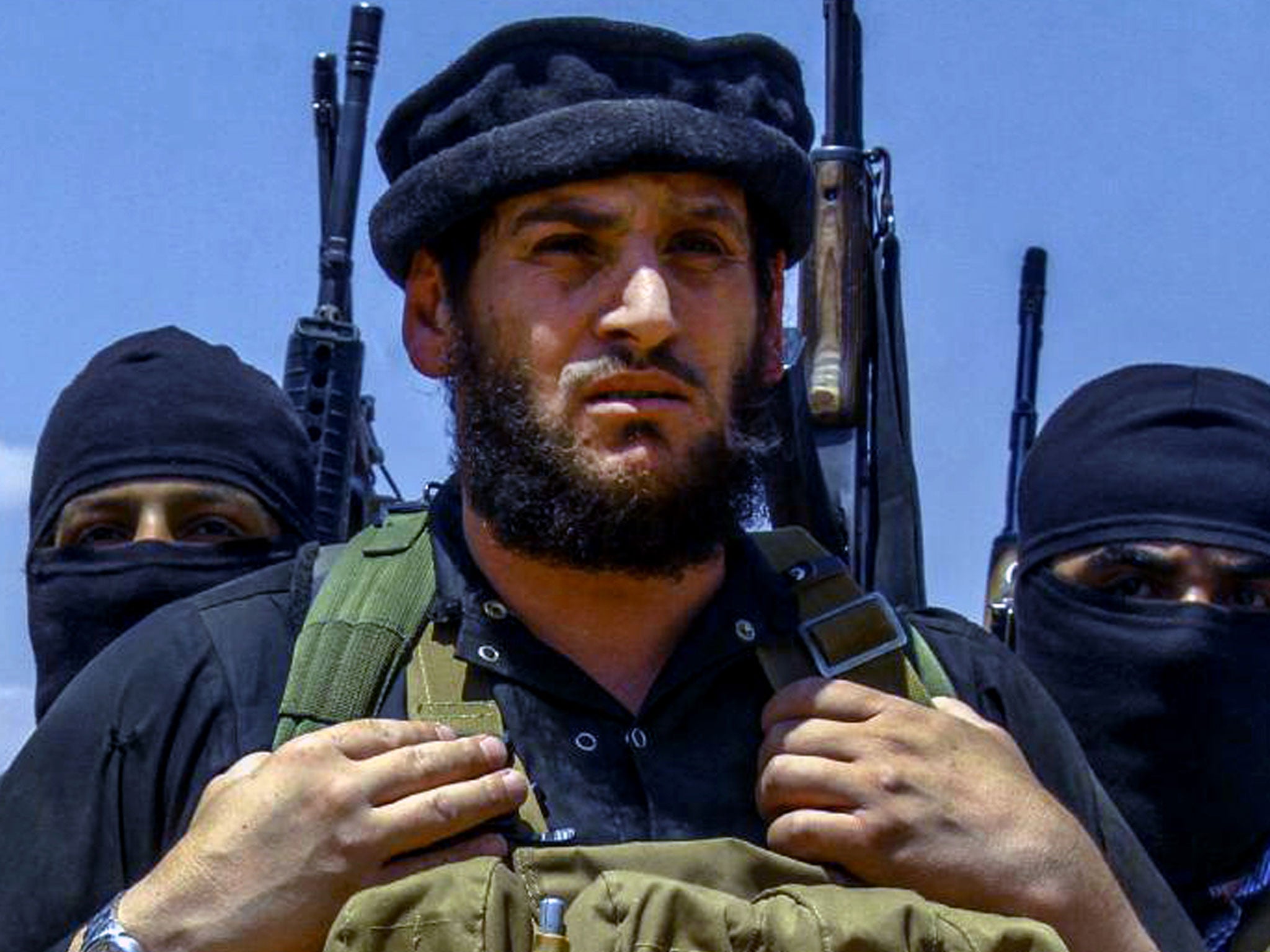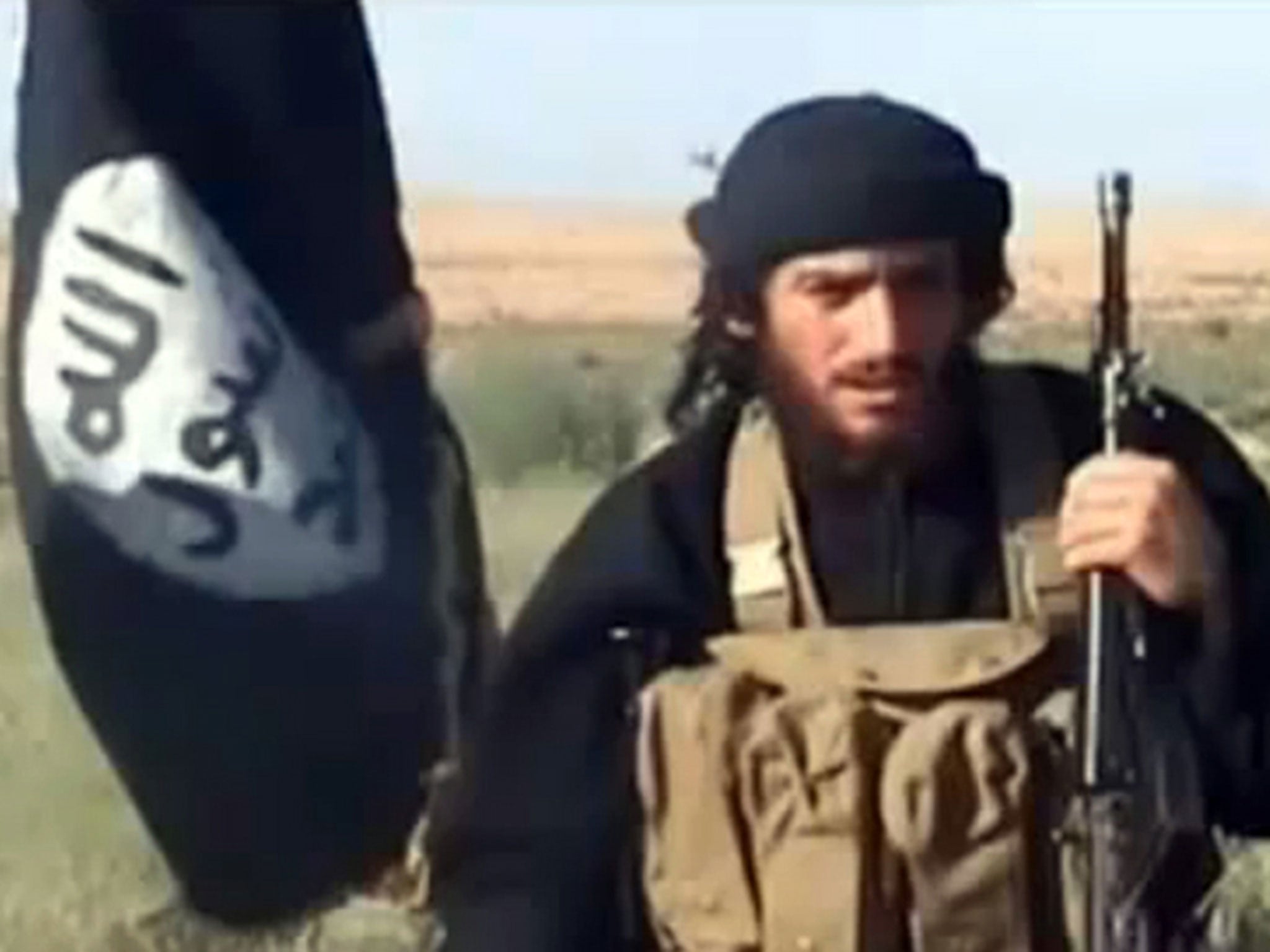The killing of Abu Mohammed al-Adnani is a major blow for Isis, but the terror group was already badly battered
However, although Isis is weakening, its various enemies remain as divided as ever, says Patrick Cockburn in Damascus


Your support helps us to tell the story
From reproductive rights to climate change to Big Tech, The Independent is on the ground when the story is developing. Whether it's investigating the financials of Elon Musk's pro-Trump PAC or producing our latest documentary, 'The A Word', which shines a light on the American women fighting for reproductive rights, we know how important it is to parse out the facts from the messaging.
At such a critical moment in US history, we need reporters on the ground. Your donation allows us to keep sending journalists to speak to both sides of the story.
The Independent is trusted by Americans across the entire political spectrum. And unlike many other quality news outlets, we choose not to lock Americans out of our reporting and analysis with paywalls. We believe quality journalism should be available to everyone, paid for by those who can afford it.
Your support makes all the difference.The apparent killing of Abu Mohammed al-Adnani, leading propagandist and senior operational leader of Isis in an airstrike, is the latest serious blow to the Jihadi movement.
Once Isis boasted of its swift victories against superior forces in Iraq and Syria in 2014 as a sign of divine assistance, but since the summer of 2015 it has suffered nothing but defeats on the ground and the deaths of senior leaders.
At the moment of Isis’s greatest and most astonishing success,when it seized the northern city of Mosul two years ago, Adnani said that “enemies and supporters alike are flabbergasted” by its triumphs. He called on Isis fighters to press forward and not become arrogant and over-confident. “Be warned and do not fall prey to your vanities and egos,” he said. “Do not let your egos fall prey to your recent military gains such as the Humvees, helicopters, rifles and military equipment.”
Adnani would have been wise to take his own advice. For a short time Isis was a ferociously successful army that emerged from nowhere to conquer an area the size of Great Britain in western Iraq and eastern Syria. The fact that both the US and Russia claimed that they killed him on Tuesday night and that he died while overseeing Isis resistance to Turkish and Kurdish attacks underlines the number of enemies Isis managed to make during its brief period of triumph. It effectively declared war against the entire world in the name of its messianic creed and is now paying a price for its unrestrained belligerence.
It captured Ramadi in Iraq and Palmyra in Syria in May 2015, but since then it has been in retreat. It has lost both cities and these days holds few urban centres aside from Mosul and Raqqa. Where its men have stood and fought they suffered devastating losses. The obvious strategy was to revert to guerrilla warfare, but Isis has been unable hitherto to make successful counter-attacks.
Adnani himself put a brave face on these defeats, saying: “Do you think, O America, that victory is by killing one leader or another?” He recalled that the US success in killing Abu Musab al-Zarqawi, the founder of al-Qaeda in Iraq, in 2006 and Osama bin Laden in 2011, had not ended the movements they led. Adnani down played the loss of cities and territory, asking: “were we defeated when we lost the cities in Iraq and were in the desert [between about 2007 until 2012] without any city or land?“
This time round the situation is worse for Isis because it is encircled by enemies who claim they are closing in for the kill. But the very number and diversity of Isis’s enemies have never been entirely to the disadvantage of the self-declared Caliphate, because they hate and suspect each other as much as they do Isis. This is particularly true of Turkey and the Syrian Kurds, both of whom are committed to battling Isis, but these days reserve their bitterest venom for each other. In the last few days, the US has desperately been trying to arrange a ceasefire between the two, but Ankara says there can be no agreement with Syrian Kurdish “terrorists”.
The Americans had supposed that Isis would fight for Jarabulus on the Syrian-Turkish border which stands at the east end of the 60-mile stretch of territory which was Isis’s last exit and entry point to the outside world. Isis fighters had suffered a thousand dead fighting for Manbij, another town on the same supply route, which the Kurdish led Syrian Democratic Forces (SDF) had besieged for weeks.
But instead Isis fighters evacuated Jarabulus without fighting to allow Turkish-backed Syrian rebels to capture it and may well have been pre-informed about what was going to happen. Probably Isis leaders thought that there was no point in suffering heavy losses in a battle that they were bound to lose. They may also have calculated that it was to the advantage of Isis to let Turks and Kurds confront each other rather than the Jihadis. It will be difficult now for the Syrian Kurds, who have built a quasi-state in north east Syria, to continue the highly successful alliance between their ground troops and US airpower directed against Isis.

This US-Kurdish air-ground cooperation has been devastatingly successful in Syria since Isis lost the four-and-a-half month long battle for the Kurdish city of Kobani which ended in early 2015. This may have made the Kurds over-confident in their own military prowess and the likelihood of continued American backing. The great swathe of territory they have taken east of the Euphrates is particularly vulnerable to Turkish attack because much of its population is in cities just across the frontier. The problem for the Turks is that their present foray does not eliminate their central problem that there is now a de facto Kurdish state in Syria and only an all-out ear can eliminate it. This poses a great difficulty for the US which will have to decide if it is going to stand by its Kurdish ally in the face of a Turkish onslaught.
The war in Syria and Iraq has always been like a Middle Eastern version of the War of the Roses with sworn allies eyeing each other suspiciously and everybody fearing betrayal. The chaos and the continued violence is much in the interest of Isis and al-Qaeda clones, all of whom are the product of war.
But was Adnani right in predicting that Isis’s might rise again as it had done in the past? After the US ‘surge’ in troop numbers in Iraq in 2006/2007 and the split in the armed resistance and the Sunni community, al-Qaeda and the movement that declared the Caliphate a few years later, was supposed to be dead and buried. The difference this time round is that in Iraq a large part of the Sunni community has lost their homes and more will do so if Mosul falls. Isis may prove to be the death knell of its own Sunni community.
In Syria, Isis is likewise on the retreat under attack from the US, Russia, Kurds, Syrian Army and, unlike Iraq, it does not have a monopoly of Sunni Arab armed resistance. It can launch spectacular attacks abroad, committing atrocities that dominate the news agenda for days at a time. But this will not prevent the Caliphate ultimately being battered into extinction even if the process takes a few years. Adnani’s death may have brought the defeat of Isis a little closer, but he and other Isis leaders were already failing to find solutions to problems which were mostly the result of their own hideous cruelty and violence.
Join our commenting forum
Join thought-provoking conversations, follow other Independent readers and see their replies
Comments